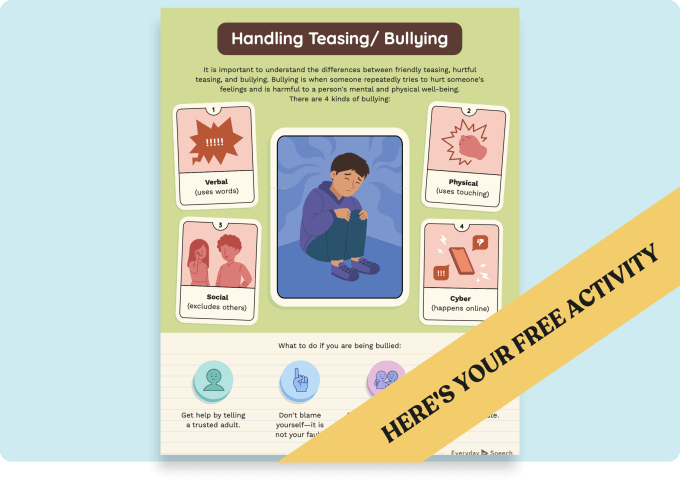Effective IEP Goals for Developing the Topic Radar Skill
Get free social skills materials
No-prep lessons on self-regulation, emotional recognition, conversation skills, and more.
Sign up hereDownload 50+ Example IEP Goals
Customizable library of strengths-based goals
In special education, it is essential to develop skills that help students successfully navigate social interactions. One such skill is the Topic Radar, which allows students to engage in conversations that interest both themselves and others. This blog post will explore the significance of the Topic Radar skill, the role of specialists in its development, and specific IEP goals to foster its growth in Kindergarten students.
Understanding the Topic Radar Skill
The Topic Radar skill involves thinking about other people’s interests and finding common ground for conversation. It is crucial for students’ learning, social interactions, and overall wellbeing. By using the Topic Radar, students can develop meaningful relationships, enhance their communication skills, and become more empathetic individuals.
The Role of Specialists
Several specialists can support the development of the Topic Radar skill in students:
- Speech-Language Pathologists: Assist in improving communication skills, including topic selection and conversation flow.
- Social Workers: Help students understand social norms and navigate relationships effectively.
- Psychologists: Address any underlying psychological or emotional issues hindering the development of the Topic Radar skill.
- School Counselors: Provide guidance and support for students to enhance their social skills and build self-esteem.
IEP Goals for Topic Radar Skill
Below are specific SMART IEP goals to improve the Topic Radar skill in students:
- Goal 1: By the end of the school year, the student will initiate conversations with peers by asking about their interests in 8 out of 10 opportunities.
Strategies and Activities: Role-playing, social stories, and practicing conversation starters.
- Goal 2: The student will maintain conversations by asking relevant questions and making appropriate comments in 7 out of 10 social interactions.
Strategies and Activities: Visual supports, modeling, and guided practice during group activities.
- Goal 3: The student will demonstrate active listening by making eye contact and responding appropriately to peers’ comments in 9 out of 10 social situations.
Strategies and Activities: Video modeling, social scripts, and reinforcement of positive behaviors.
Implementing and Measuring Progress
To implement these IEP goals, educators should collaborate with specialists, provide consistent support, and create opportunities for practicing the Topic Radar skill. Progress can be measured through observation, data collection, and feedback from peers and staff members.
Conclusion
Developing the Topic Radar skill is essential for fostering healthy social interactions in Kindergarten students. By implementing these IEP goals, educators can help students build meaningful connections and enhance their communication skills. We encourage you to apply these IEP goals and invite you to explore more resources at Everyday Speech Sample Materials.


